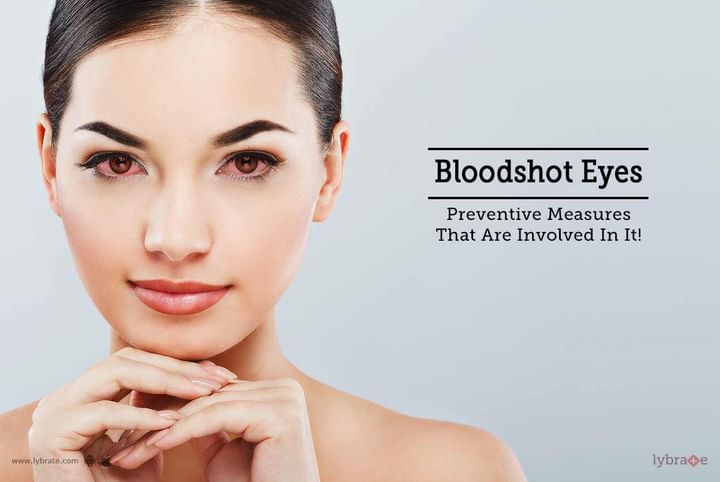Bloodshot Eyes - Preventive Measures That Are Involved In It!
Bloodshot eyes indicate the reddening of the eye vessels. They can cause irritation and make the eye swollen. The condition may arise due to allergies, eye infections, allergies, fatigue and other illness of the eye. It does not signify a disease but indicates an eye condition which might have caused the eye to redden. Bloodshot eyes can be encountered in one or both the eyes.
Causes of Bloodshot Eyes:
One of the frequent causes of bloodshot eyes is irritants such as dry air, pollen, pet dander, dust and UV rays of the sun. Shortage of sleep also tends to make the eyes red. Inflammations of the eye can also make them red giving a bloodshot appearance. It can even happen with people who wear contact lens for more than 16 hours without soaking it in the disinfectant. At times excessive dryness can make the eyes red. Some other reasons for the eye to become red include conjunctivitis, blepharitis, glaucoma and corneal ulcer. Another concerning reason of bloodshot eyes is a subconjunctival haemorrhage. While the latter is not dangerous in nature, it can cause significant trouble if proper care is not taken on time.
Symptoms of Red Eyes:
Some of the common signs of bloodshot eyes include watery eyes, foreign sensation, burning feeling, dermatitis, falling of eye lashes, light sensitivity, swollen eyelid, itching of the eye and feeling of irritation of the eye.
The Complications Involved:
In most of the cases, bloodshot eyes do not imply serious complications. In case it happens from conjunctivitis, a person may not be able to go to work, wear cosmetics and come in public places since it is a communicable disease. If bloodshot eyes arise from a serious condition such as glaucoma and trauma, some of the possible complications may involve the following:
-
Eye scarring
-
Vision loss due to complete blindness
-
Spreading of the existing condition to other persons
-
Eye loss in severe cases
Preventive Measures:
Bloodshot eyes might arise from an array of reasons. While it cannot be totally dodged, some general preventive measures can ensure that such a condition does not arise:
-
Keeping hands clean by thoroughly washing them with liquid soap
-
Not sharing personal belongings such as washcloths, linen, and cosmetics
-
Get immediate medical attention in case of any eye injuries
-
Stay away from an environment that is full of allergens
-
Staying away from people who are suffering from infectious eye diseases such as conjunctivitis
-
Taking a shower immediately after getting in touch with an infected person suffering from conjunctivitis
-
Wearing eye glasses in a dusty environment



+1.svg)
